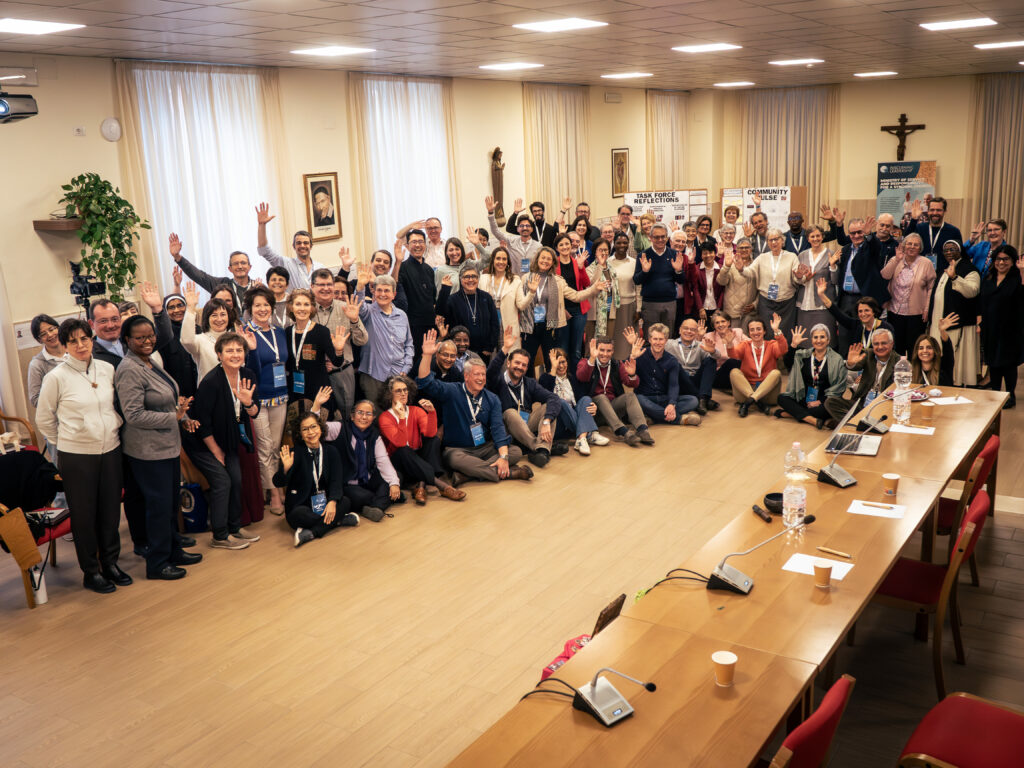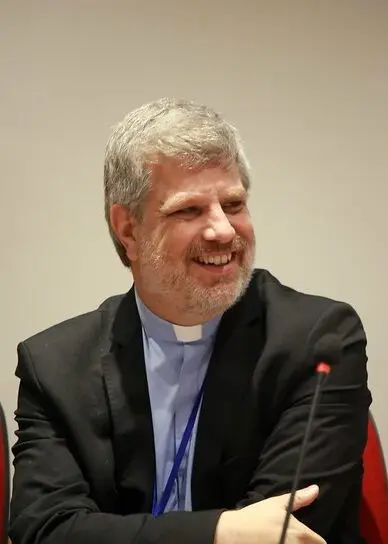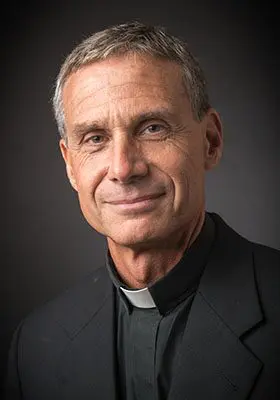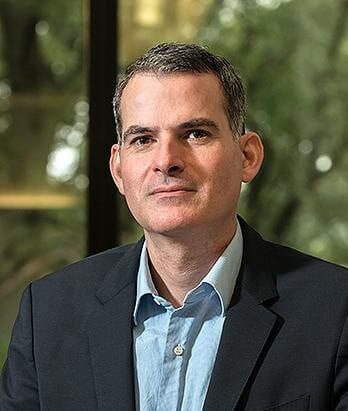A couple of more encompassing reflections on synodality are worthwhile. The first reflection is more anthropological; the second is more theological
1. A new collective subject
Outside the Church
In many ways and with regard to many events, my impression is that we are living in a historical moment in which humanity perceives itself as a (new) collective subject, as a single actor before its own destiny. Today there is an interaction between people, societies and states, which is developing to the maximum the process of awareness that we are a single united actor, protagonist and responsible for its history.
In anthropological terms, the above means that we are experiencing a leap of consciousness: from the I -in all its versions: individual, culture-state-continent…- to the we -also in all its versions: planet, nature, ecosystem, networks…-. Covid-19 was the occasion to witness that this “we” was the question! -If we did not fight together, and not separately, against the virus, we were not going to do anything really effective against the pandemic. The ecological crisis has been telling us the same thing for quite some time. All this represents a demanding and not easy step towards a cultural horizon that puts in our hands a different vision of what is common. Unlike other historical moments, this step comes to us today as a requirement of the first order: almost to be or not to be, to live or to die?
However, the meaning of this unprecedented universality is a hotly debated issue today. All possible positions are appearing within such a profound transformation process: from globalization -which excessively standardizes this planetary “we”– to populism -which excessively particularizes the local and cultural “we”. Between one and the other, quite a few things are happening, as if we were facing a true “agitation of spirits”, which warns of a very deep cultural movement, described by some as the explosion of a new anthropology -with features such as its extreme sensitivity to diversity, its constant call for inclusion, its recognition of the minority (indigenism, anti-colonialism, historical revisionism), its recognition of the resized otherness of women, its new paradigm of sexuality, etc.-. Denialism can be seen as an irrational rejection of this transition. It is not a minor phenomenon. It is currently splitting many contemporary societies in half.
Inside the Church
My impression is that the Church is not unscathed by all of the above. The current fragmentation of the Church is a result of how it is internalizing the cultural transition to a new us. But that fragmentation is proof that we are at a juncture that affects crucial issues, about which choices have to be made. And if choices have to be made, then the Church is not dead, but alive.
In my understanding, synodality is, roughly speaking, the Church’s current response to the cultural crossroads in which we find ourselves. Synodality is the framework that encompasses areas, concepts and ecclesial practices, which point to a certainly different way – albeit with very ancient roots – of perceiving ourselves as us, as a collective body (a way that I judge enormously pertinent for the moment we are living in). The Church, being synodal, constitutes a we that could well help the world it seeks to evangelize by offering a transformative version of the collective.
2. Common Discernment and Synodality
Of the many aspects associated with synodality, discernment in common is absolutely key. Discernment brings to mind a concept of Christian discipleship from which an ecclesiality appropriate for our times can also be deduced. In other words, Christian discipleship can (should) be understood as a permanent state of discernment, which generates a new kind of ecclesial belonging.
Taken as a whole, the theological extrapolations derived from Ignatian discernment suggest an even more fundamental question: the ecclesiality that should be assumed if such extrapolations are accepted.
This ecclesiality would advocate two principles:
a) In times tempted by superficiality, the depth to which discernment leads us goes hand in hand with a Christian discipleship lived as a permanent state of seeking God’s will. But this supposes conceding, from the outset, that every baptized person is capable of discernment. It has not always been admitted in this way. Discernment has been assumed to have a certain exclusivity and exceptionality, and has been recognized as possible only for a small group of believers. An example of this is the recurrent discussion about the value of vocal prayer versus mental prayer. Discernment rests especially on the goodness of the latter, but such goodness has not been peacefully accepted by the spiritualities in force in the Church. The Ignatian spirituality, among others, thinks that discernment, in whatever degree, is feasible for anyone, based on the immediacy of the relationship that God establishes with each human being.
b) The search for God’s will is not confined to the sphere of personal experience. It can also be done collectively. The communitarian application of personal discernment is being defended and promoted recently. In the Jesuit tradition, in spite of its reticence, this application is not strange. Themes such as the discrete charitas of the government of persons, communal deliberation and spiritual accompaniment are long-standing records in the Society of Jesus that demonstrate that personal discernment has transcended the limits of the strictly individual. What is interesting is that the extension of personal discernment to the community level brings with it ecclesial consequences, all of them of great significance. Community discernment, in its different versions, would underline the importance of the spiritual conversation of personal motions as the best communicative means for decision making. Or it would emphasize that authority in the Church is a key element, but not the only one from the outset, in the co-responsible search for God’s will. Or it would enhance the communitarian dimension of faith by valuing the role of the community as the collective subject of significant consolations and desolations in defining the mission. Or it would promote that the growth in faith of each believer has to pass through the spiritual accompaniment offered by other believers, suitable in the personal processes of discernment. Or it would enrich the methodology of pastoral planning of the current ecclesial structures, by incorporating, without fear, more numerous and horizontal instances of discernment.
All this is the outline of a qualitative Christianity, animated by its real capacity for discernment. Contemporary Christianity will be looked at, more than by its whats, by its discerned hows: by the way it bases and focuses its strategic choices of evangelization, its procedures for carrying them out and its credibility in incarnating them. The Church has to emit signs of depth, that which discernment provides. Its institutional strength will be ineffective without them. The practice of discernment would favor that depth. It would give the message that the Church does not hesitate to see that it is facing a world open to new forms of humanization, for which a new conscience is also required: the one to which the Spirit has always led when it is listened to for discernment.
El artículo original fue escrito en español y puede encontrarse aquí.







 Fr. Giacomo Costa SJ did studies in philosophy and theology, and he also obtained a master's degree in Political and Moral Sociology at the EHESS in Paris.
Fr. Giacomo Costa SJ did studies in philosophy and theology, and he also obtained a master's degree in Political and Moral Sociology at the EHESS in Paris. He is the responsible for Formation at the Society of Jesus.
He is the responsible for Formation at the Society of Jesus. Prof. Rafael Luciani received his licentiate and doctorate in theology from the Pontifical Gregorian University in Rome and a degree in educational sciences with a philosophical orientation from the Universidad Católica "Andrés Bello" in Caracas (Venezuela). He also studied philosophy at the Salesian Pontifical University in Rome and did post-doctoral work at the Julius Maximilians Universität in Würzburg (Germany).
Prof. Rafael Luciani received his licentiate and doctorate in theology from the Pontifical Gregorian University in Rome and a degree in educational sciences with a philosophical orientation from the Universidad Católica "Andrés Bello" in Caracas (Venezuela). He also studied philosophy at the Salesian Pontifical University in Rome and did post-doctoral work at the Julius Maximilians Universität in Würzburg (Germany). Nathalie Becquart serves as Undersecretary of the Secretariat of the Synod of the Bishops since March 2021.
Nathalie Becquart serves as Undersecretary of the Secretariat of the Synod of the Bishops since March 2021. Robert J. Bies (Ph.D., Stanford University) is Professor of Management and Founder of the Executive Master’s in Leadership Program at the McDonough School of Business at Georgetown University. In addition, Dr. Bies is a co-author of the book, Getting Even: The Truth About Workplace Revenge—And How to Stop It.
Professor Bies’s current research focuses on leadership, the delivery of bad news, organizational justice, and revenge and forgiveness in the workplace.
Robert J. Bies (Ph.D., Stanford University) is Professor of Management and Founder of the Executive Master’s in Leadership Program at the McDonough School of Business at Georgetown University. In addition, Dr. Bies is a co-author of the book, Getting Even: The Truth About Workplace Revenge—And How to Stop It.
Professor Bies’s current research focuses on leadership, the delivery of bad news, organizational justice, and revenge and forgiveness in the workplace.